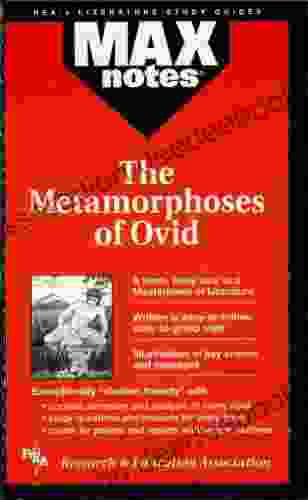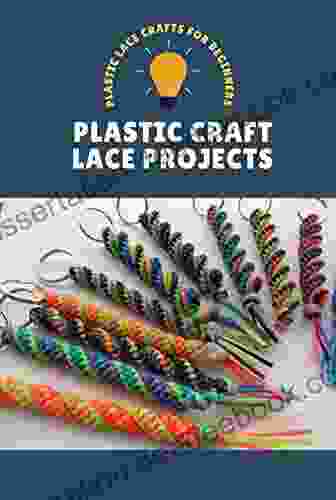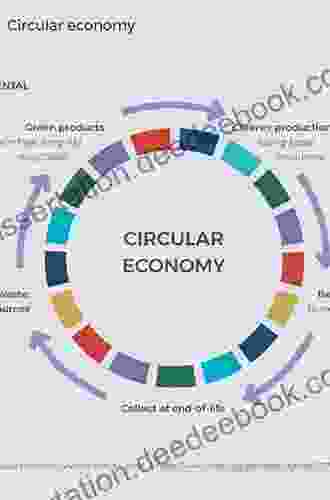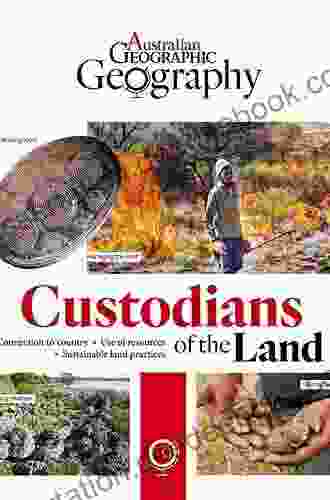The Circular Economy: A Blueprint for Sustainable Growth in Europe

What is the circular economy?
The circular economy is a model of production and consumption that aims to eliminate waste and pollution, while recirculating resources within the economy. This means designing products and services that are durable, reusable, and recyclable, and using materials and energy efficiently.
4.5 out of 5
| Language | : | English |
| File size | : | 3189 KB |
| Text-to-Speech | : | Enabled |
| Screen Reader | : | Supported |
| Enhanced typesetting | : | Enabled |
| Word Wise | : | Enabled |
| Print length | : | 207 pages |
The circular economy is in contrast to the traditional linear economy, which is based on the take-make-dispose model. In the linear economy, resources are extracted from the environment, used to produce goods, and then disposed of as waste. This model is unsustainable, as it leads to the depletion of resources and the accumulation of waste.
The benefits of the circular economy
The circular economy offers a number of benefits for Europe, including:
- Reduced resource consumption: The circular economy can help to reduce Europe's consumption of resources, such as energy, water, and materials. This can help to protect the environment and reduce our dependence on imported resources.
- Reduced pollution: The circular economy can help to reduce pollution by reducing the amount of waste that is generated. This can help to improve air quality, water quality, and soil quality.
- Increased economic growth: The circular economy can help to create new jobs and boost economic growth. This is because the circular economy requires new businesses and industries to develop new products and services.
- Increased competitiveness: The circular economy can help European businesses to become more competitive in the global marketplace. This is because the circular economy can help businesses to reduce costs and improve the quality of their products and services.
The key steps to transitioning to a circular economy
There are a number of key steps that need to be taken to transition to a circular economy in Europe. These steps include:
- Designing products and services for circularity: Products and services need to be designed with circularity in mind. This means designing products that are durable, reusable, and recyclable, and designing services that encourage sharing and reuse.
- Using materials and energy efficiently: Materials and energy need to be used efficiently throughout the economy. This means using less materials and energy to produce products and services, and using renewable energy sources.
- Creating markets for recycled materials: Markets need to be created for recycled materials. This means developing demand for recycled materials and ensuring that recycled materials are of high quality.
- Investing in innovation: Innovation is needed to develop new products, services, and technologies that support the circular economy. This includes investing in research and development, and supporting start-ups and SMEs.
- Changing consumer behavior: Consumers need to change their behavior to support the circular economy. This means buying products that are durable, reusable, and recyclable, and using products and services in ways that minimize waste.
The circular economy offers a number of benefits for Europe, including reduced resource consumption, reduced pollution, increased economic growth, and increased competitiveness. To transition to a circular economy, Europe needs to take a number of key steps, including designing products and services for circularity, using materials and energy efficiently, creating markets for recycled materials, investing in innovation, and changing consumer behavior.
The circular economy is a key part of Europe's future. By transitioning to a circular economy, Europe can create a more sustainable, more prosperous, and more competitive future for its citizens.
4.5 out of 5
| Language | : | English |
| File size | : | 3189 KB |
| Text-to-Speech | : | Enabled |
| Screen Reader | : | Supported |
| Enhanced typesetting | : | Enabled |
| Word Wise | : | Enabled |
| Print length | : | 207 pages |
Do you want to contribute by writing guest posts on this blog?
Please contact us and send us a resume of previous articles that you have written.
 Book
Book Page
Page Genre
Genre Reader
Reader Library
Library Paperback
Paperback E-book
E-book Magazine
Magazine Newspaper
Newspaper Paragraph
Paragraph Shelf
Shelf Glossary
Glossary Bibliography
Bibliography Preface
Preface Annotation
Annotation Footnote
Footnote Manuscript
Manuscript Tome
Tome Classics
Classics Library card
Library card Narrative
Narrative Autobiography
Autobiography Encyclopedia
Encyclopedia Dictionary
Dictionary Character
Character Card Catalog
Card Catalog Borrowing
Borrowing Stacks
Stacks Research
Research Reserve
Reserve Journals
Journals Special Collections
Special Collections Study Group
Study Group Thesis
Thesis Dissertation
Dissertation Storytelling
Storytelling Reading List
Reading List Book Club
Book Club Theory
Theory Textbooks
Textbooks Leia Stinnett
Leia Stinnett E J Clery
E J Clery Frederick Forsyth
Frederick Forsyth W E Lyons
W E Lyons Maddie Frost
Maddie Frost Valerie Francisco Menchavez
Valerie Francisco Menchavez Patrick Baker
Patrick Baker Kevin Newman
Kevin Newman Elizabeth A Cudney
Elizabeth A Cudney Nellie C Lind
Nellie C Lind Matthew Burgess
Matthew Burgess Christina Shelton
Christina Shelton Eugene Gloria
Eugene Gloria Colin Fleming
Colin Fleming Rus Wilson
Rus Wilson K Nicole
K Nicole Luis Diaz Santana Garza
Luis Diaz Santana Garza Christine Pearson Casanave
Christine Pearson Casanave Susanna Clarke
Susanna Clarke A J Hill
A J Hill
Light bulbAdvertise smarter! Our strategic ad space ensures maximum exposure. Reserve your spot today!

 Gregory WoodsMandolin Songbook For Beginners: 100 Timeless Folk And Children Songs With...
Gregory WoodsMandolin Songbook For Beginners: 100 Timeless Folk And Children Songs With...
 Richard WrightIf Can Have You: Exploring the Possibilities and Potential of AI in Human...
Richard WrightIf Can Have You: Exploring the Possibilities and Potential of AI in Human... Foster HayesFollow ·18.4k
Foster HayesFollow ·18.4k Demetrius CarterFollow ·6.2k
Demetrius CarterFollow ·6.2k Julio CortázarFollow ·2.8k
Julio CortázarFollow ·2.8k Yasushi InoueFollow ·11.7k
Yasushi InoueFollow ·11.7k Marvin HayesFollow ·12.8k
Marvin HayesFollow ·12.8k Ernest ClineFollow ·3.5k
Ernest ClineFollow ·3.5k Braden WardFollow ·19.5k
Braden WardFollow ·19.5k Ken SimmonsFollow ·11.3k
Ken SimmonsFollow ·11.3k

 Keith Cox
Keith CoxFrench Pieces for Flute and Piano: A Journey into...
The world of...

 Justin Bell
Justin BellThe Big Clarinet Songbook: A Musical Treasure for...
The clarinet, with its rich...

 Jamie Blair
Jamie BlairThe Metamorphoses of Ovid: A Masterpiece of...
An Epic Tapestry of Mythology and...

 Alan Turner
Alan TurnerBaa Baa Black Sheep: A Classic Sing-Along Song for Kids
Baa Baa Black Sheep...

 Bradley Dixon
Bradley DixonUnveiling the Enigmatic Shakespeare Spy: The...
Prologue: The Shadowy World...

 Gilbert Cox
Gilbert CoxUnleash Your Creativity with Plastic Craft Lace Projects:...
Plastic craft lace is a...
4.5 out of 5
| Language | : | English |
| File size | : | 3189 KB |
| Text-to-Speech | : | Enabled |
| Screen Reader | : | Supported |
| Enhanced typesetting | : | Enabled |
| Word Wise | : | Enabled |
| Print length | : | 207 pages |







